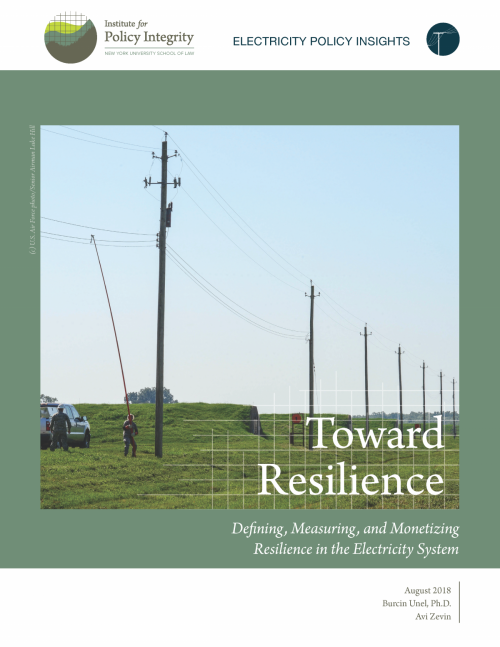Grid resilience—generally, the electric grid’s ability to resist/absorb, manage, quickly respond, and recover from/adapt to high-impact, low-probability external shocks—has been a concern for electric utilities and energy planners for decades. While recent extreme weather and cyber security concerns have prompted the federal government to pursue policies that support coal and nuclear power plants, a more systematic focus on resilience will lead to very different solutions than what has been proposed by the Department of Energy.
Our report aims to assist policymakers in understanding grid resilience and evaluating potential interventions aimed at improving grid resilience. It develops a definition of resilience grounded in academic literature; describes a methodology for calculating the costs and benefits of potential grid resilience improvements; identifies legal authorities that states and federal agencies can use to implement resilience-enhancing policies and investments; and analyzes the Trump Administration’s proposals to support coal and nuclear plants in light of the insights developed in the report.

